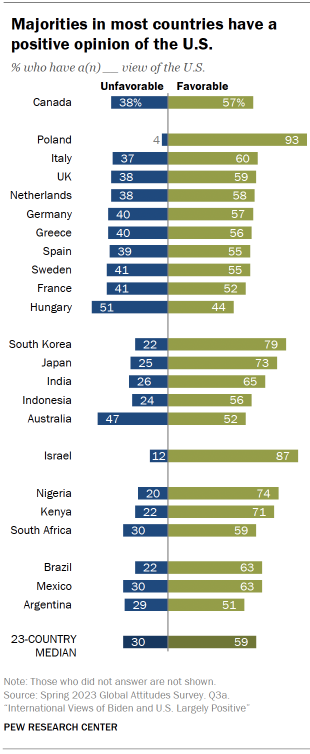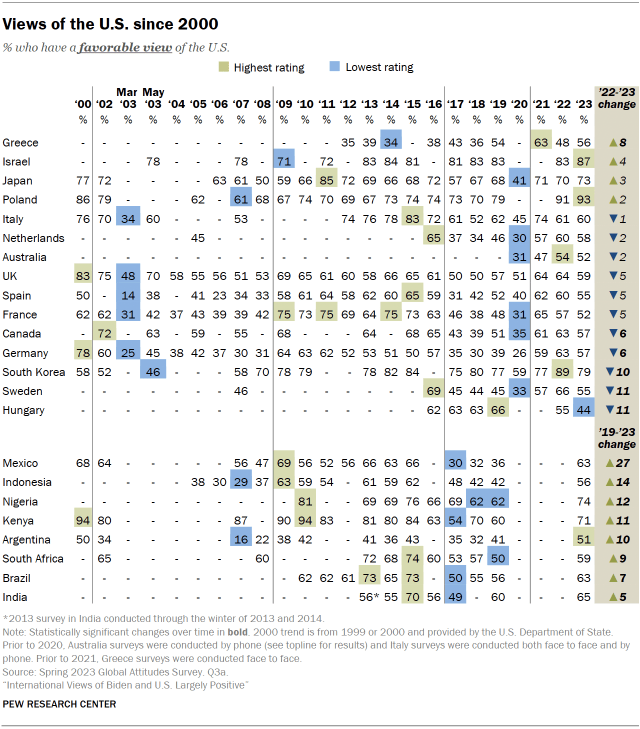Views of the U.S. are much more positive than negative across the countries we surveyed. A 23-nation median of 59% have a favorable view of the U.S., while only 30% have an unfavorable view.

Opinion of the U.S. is especially positive in Poland and Israel, where the shares who rate the U.S. favorably are the highest they have been since we first started surveying in those countries. Poland’s views of the U.S. improved dramatically last year after the start of the war in Ukraine and remain high this year.
Hungary is the only country surveyed this year where views of the U.S. are on balance negative: 51% of Hungarians have an unfavorable opinion of the U.S., compared with 44% who have a positive opinion. Hungary is also the only country where assessments of the U.S. are at a record low.
In many other countries that have data from both 2022 and 2023, views of the U.S. have stayed relatively consistent since last year, though ratings have dropped somewhat in Germany, Canada, South Korea and Sweden.
In countries where we have not surveyed since 2019, views of the U.S. have improved. In general, they follow the same pattern as we saw in our 2021 survey: Many countries gave the U.S. record low ratings during former president Donald Trump’s administration and the start of the coronavirus pandemic, then saw a marked improvement after Biden took office. For example, 63% of Mexicans now rate the U.S. positively, compared with a low of 30% in 2017, Trump’s first year as president.

In 17 countries, including Canada, Australia, South Korea, Israel and nations in Europe and Latin America, we asked people to place themselves on an ideological scale ranging from left to right. People on the political right generally have more positive views of the U.S. than those on the political left. The exception, again, is Hungary: Hungarians on the right of the political spectrum – particularly those who have a favorable view of the ruling Fidesz party – are less likely to view the U.S. positively.




